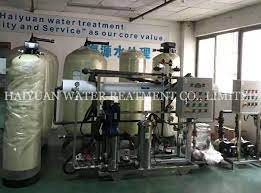Social Response to Environmental Pollution and Types of Environmental Pollution
Environmental pollution is the unfavourable alteration of our surroundings, wholly or largely as a by-product of man’s actions, through direct or indirect effects of the changes in the energy pattern, radiation levels, and chemical and physical constitution and abundance of organisms.
Environmental pollution is a global problem and is common to both developed as well as developing countries, which attracts the attention of human beings for its severe long-term consequences (Rai, 2016).
Environmental pollution is associated with adverse health effects experienced or measured in the short or long term that clinically may be described as either acute or chronic.
Usually acute effects follow sudden and severe exposure and rapid absorption of the substance. On the contrary, chronic effects may not be immediately observed and follow prolonged or repeated exposures over more or less relatively long periods (Reis, 2011).
Types of Environmental Pollution
According to Rai (2016), environmental pollution maybe categorized depending on the nature of pollutants and also subsequent pollution of environmental components, viz:
Air Pollution
Water Pollution
Soil/Land Pollution
Noise Pollution
Radioactive Pollution
Thermal Pollution
Different societies view things differently due to culture, religion or exposure to technology. Some societal problems are unique to every society, while some are limited or specific to a particular society or region.

The developed regions of the world face different environmental challenges from developing or under-developed regions. That said, handling the environmental challenges peculiar to all regions vary due to the societal norms.
Read Also : Methods of Dissemination of Environmental Information
In China for example being the second largest producer of have taken a huge leap in curbing polluting the environment with waste by providing waste sorting equipment in over 40 major cities and also enforcing a strict law of fining non-compliant persons about $30 while businesses and institutions up to $7000.
Obafemi et. al., (2012) assessed the public perception on the environmental pollution profile in Warri Township where respondents affirmed that air pollution is being experienced in the area as well as water and land pollution.
The result of his analysis corroborated with the findings of that pollution of the environment is in different categories which can be land pollution, air pollution, noise pollution and water pollution.
Respondents in the study also revealed that there are three major sources of environmental pollution in the study area and these included improper waste disposal, oil spillage and gas flaring; and ejection of carbon monoxide into the atmosphere.
Having revealed this, the community members sabotage pipelines thereby causing oil spillage and when there is corrosion they hardly report to the right authority.
It took the people of Ebubu Community of Ogoni 40 years to get judgement to be compensated for the massive oil spills that affected about 255.369 hectares of their land in 1970 (Vanguard newspaper, July 6, 2010).
This is not justice in our opinion as “justice delayed is justice denied”. Also, Bodo Community that got judgement against SPDC in 2011 in London court is yet to be compensated for oil spill of 2008.
A study covering the period between 1981 and 1986, which showed that of 1,081 claims for compensation, only 124 claims were settled, 24 of the remaining unsettled claims went to court, others without record (Okonkwo, 2014).
Read Also : Environmental Psychology and Ecological Theory
Theresa (2012) attributed poverty, overpopulation and greed, amongst others social ills, to be the major cause of degradation of the environment. Perceptions about the main contributors to air pollution were found to vary across socioeconomic groups.
In Kuwait people identified air pollution to be the fifth most important consequence of traffic congestion out of eight possible consequences.



